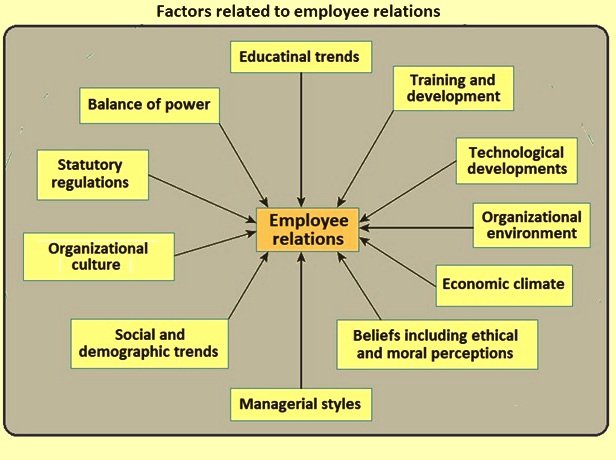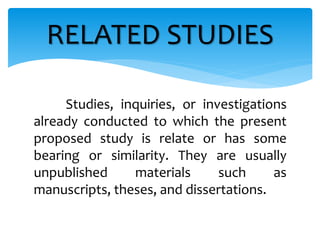Mastering "Related To": Your Essential Guide To Connections In English
Unpacking "Related To": The Core Meaning
At its heart, "related to" is used to indicate a connection or association between two or more things. It functions as a phrasal verb or an adjective phrase, typically appearing in the structure "be related to + noun." This simple construction allows us to express a wide array of relationships, from the deeply personal to the abstract and conceptual. Consider these fundamental applications: * **Indicating Kinship or Blood Ties:** Perhaps the most intuitive use, "related to" clearly defines family connections. For instance, "I am related to my cousins" immediately conveys a familial bond. This usage signifies a direct connection by blood or marriage. * **Expressing Causal Links:** "Related to" is powerful in showing cause and effect. A classic example is, "High unemployment is related to high crime rates," suggesting a direct correlation where one factor influences the other. * **Highlighting Relevance or Reference:** When something pertains to or is about a particular subject, "related to" is the perfect phrase. "The new legislation related to corporate activities" informs us that the law directly concerns or has reference to business operations. * **Connecting Concepts:** More broadly, it means to connect one thing with another. If you're trying to draw a parallel or show how two ideas intersect, "The meaning of relate to is to connect (something) with (something else)" perfectly encapsulates this. Essentially, "related to" is the proper English phrasing for establishing that two entities share a link, whether direct, indirect, causal, or thematic."Related To" vs. Its Tricky Cousins
The English language is full of subtle distinctions, and "related to" is no exception. Several phrases can sound similar but are used differently or are simply incorrect. Let's clarify these common points of confusion."Related To" vs. "Related With"
This is a common point of contention. While some might argue for "related with" when discussing communication or interaction ("This is related with my discussion"), the overwhelming consensus and proper English phrasing favor "related to" for virtually all forms of connection or association. The data provided states, "Related to is the proper English phrasing." While "related with" might occasionally appear in specific, less formal contexts, particularly when implying interaction or communication, "related to" is the grammatically sound and universally accepted choice for indicating a general connection between two things. To avoid ambiguity and maintain proper English, always opt for "related to" when discussing how one thing connects to another."Related To" vs. "Relating To"
Both "related to" and "relating to" are correct, but they carry slightly different nuances and are used in different contexts. * **"Related to"** (as we've discussed) is often used to describe an established connection or association. It often functions as an adjective phrase derived from "relation." * **"Relating to"** is perhaps more closely tied to the verb "relate" (as in, "I relate with your experience," which implies a more intimate understanding or empathy). When used as a phrase, "relating to" frequently serves to introduce a topic or indicate that something is relevant or connected to a particular subject. It can act as a prepositional phrase, often at the beginning of a sentence or clause, setting the context for what follows. For example, "Relating to environmental policies, the committee discussed new regulations." Here, "relating to" introduces the subject matter. In summary, "related to" speaks to an existing link, while "relating to" often introduces or points towards a connection, setting the stage for discussion about a relevant topic.Why Not "Related On" or "Related In"?
"Related on" is simply not a standard English phrase in this context. You will not find it used to indicate a connection between two things. Avoid using it. "Related in" is a bit more complex. While the data includes contradictory statements about its commonality, the strong emphasis on "related to" being the "proper English phrasing" for connections suggests that "related in" is not a direct substitute for the phrasal verb "be related to." However, "related" can be followed by "in" when "in" describes the *way* or *aspect* of the relation, rather than the object of the relation. For example, "They are related *in* concept" means their concepts are similar, not that they are connected *to* a concept. But for indicating a direct link between two entities, "be related to" is the definitive choice. Phrases like "the storyline is very related in all sorts of level" might use "related" as an adjective followed by "in" to describe *how* or *where* the relation exists, but this is distinct from the phrasal verb "be related to."The Versatility of "Related To"
The power of "related to" lies in its adaptability. It can describe a wide spectrum of connections: * **Causality:** "Reversibility of alopecia is related to the degree of damage to the hair follicle stem cells." This shows a direct cause-and-effect relationship. * **Relevance to a Body or Subject:** "Committee on taxation as related to public education." Here, it specifies what the committee's focus or scope is concerning public education. * **Legal or Practical Implications:** "Investigators should be aware of particular legal issues related to data collection, analysis, and dissemination." This highlights the specific legal aspects that bear upon these activities.Synonyms and Alternatives: Expanding Your Vocabulary
While "related to" is often the most direct and clear choice, the English language offers a wealth of synonyms that can add variety and nuance to your writing. Thesaurus.com is an excellent resource for exploring these alternatives. Some common synonyms include: * **Associated (with):** Often interchangeable with "related to," especially for general connections. * **Connected (to/with):** Very similar in meaning, emphasizing a link or bond. * **Affiliated (with):** Implies a formal or organizational link. * **Akin (to):** Suggests a similar nature or character. * **Kindred (to):** Similar to akin, often used for shared spirit or origin. * **Comparable (to):** Indicates similarity in nature or quality. * **Pertained (to):** Used to mean "to be relevant to" or "to concern." * **Concerned (with/about):** Implies involvement or relevance. * **Involved (in):** Suggests participation or entanglement. * **Affected (by):** Shows influence or impact. * **Touched (on):** Implies brief mention or relevance. Using these synonyms judiciously can prevent repetition and refine the specific type of connection you wish to convey.Common Pitfalls and Best Practices
To ensure your use of "related to" is always spot-on, keep these points in mind: * **Prioritize "Related To":** For indicating a general connection or association between two things, "related to" is the proper and most commonly accepted English phrasing. * **Understand Nuances:** Be aware of the subtle differences between "related to" and "relating to" to choose the most appropriate phrase for your context. * **Avoid Non-Standard Phrases:** Steer clear of "related on" as it's not grammatically correct for expressing connections. * **Consult Resources:** When in doubt, resources like the Oxford Advanced Learner's Dictionary or Thesaurus.com can provide definitions, example sentences, and synonyms to guide your usage.Summary
"Related to" is an indispensable phrase in English, serving as the primary way to express connections, associations, and relevance. It's correctly used to describe everything from familial ties and causal relationships to thematic links and legislative scope. While "relating to" has its place for introducing relevant topics, and "related with" is occasionally seen for communication, "related to" remains the standard and most widely accepted form for indicating a connection between two things. By understanding its core meaning, distinguishing it from similar-sounding phrases, and leveraging its versatility, you can use "related to" with precision and clarity, enhancing your overall communication skills.
Are We All Related? - @infographie

Employee Relations – IspatGuru

Related Literature and Related Studies | PPT